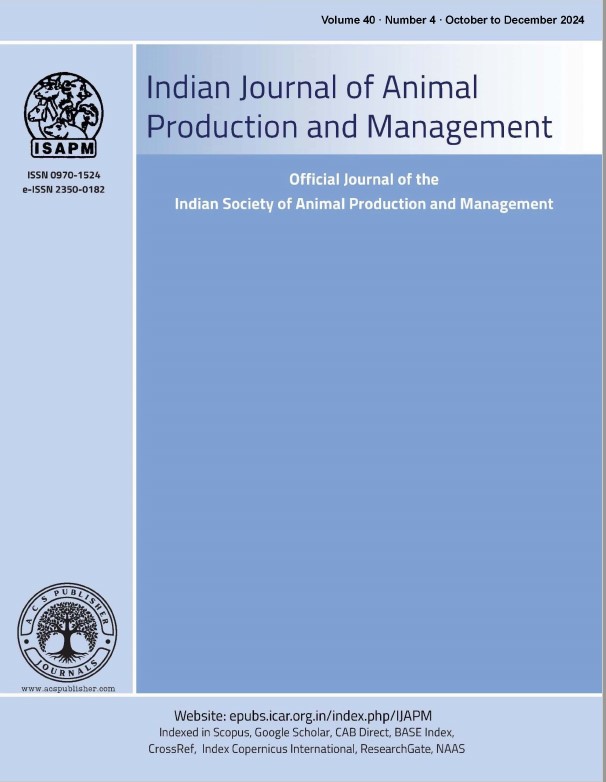Adoption of improved sheep husbandry practices among the MSSP beneficiaries inTamil Nadu
Keywords:
Adoption level, Husbandry practices, Impact of MSSP, Mecheri sheepAbstract
The present study was designed to quantify the improvement in terms of animal growth, reproduction and survivability as well as the adoption of improved sheep husbandry practices by the MSSP beneficiaries in Tamil Nadu. A total of 116 beneficiaries spread in two districts (Salem and Karur) were interviewed with pre-tested interview schedule, before and after the intervention of the MSSP for comparing reasonable impact of the project. The data revealed that there were maximum level of adoption in ram rotation (100 Percent), periodical weighment of animals (94.8 Percent) and colostrum feeding (100 Percent). There were high level of adoption in vaccination and deworming (100 Percent), isolation of sick animals (96.5 Percent) and deticking (47.50 Percent). About 68.10 and 25 Percent of the respondents were in the medium and high adopter class, respectively. It can be interpreted that if the respondents flock size increases by one unit, then the chances of achiving a higher level of adoption of recommended practices, 64 Percent less likely while other variables are kept constant. Similarly, it could be interpreted that if the respondents grazing level increases by one unit, then the chances of achiving a higher level of adoption of recommended practices, 97 Percent less likely while other variables are kept constant. While the farmer increases the investment by one unit, the adoption of recommended practices could increase by the factor of 1.000 when other variables are kept constant. Impact of this project was studied under technological and economic aspects. Majority of the respondents felt that improvement in health cover of sheep flock as a major impact.

